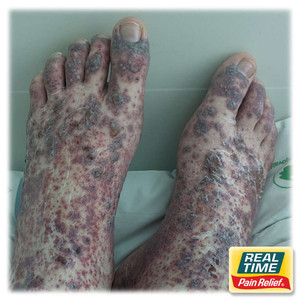Benefits of Topical Melatonin
10th Nov 2021
Have you heard of using a topical melatonin lotion? Here is a look at some of the latest research regarding the benefits of topical melatonin!
Everyone has an occasional poor night’s sleep, but if it is a regular occurrence for you to toss and turn, your health may begin to suffer. Lack of sleep or poor sleep can lead to a host of issues, including depression, weight gain, and decreased concentration.
Although we know sleep is vital to our well-being, it can sometimes be hard to come by. There are a variety of factors that can contribute to poor sleep, including the following:
- Pain
- Anxiety
- Stress
- Sleep disorders
- Gastric reflux disease
- Working the night shift
- Side effects of medications taken for medical problems
Lack of sleep can compound other issues, such as chronic illnesses and emotional problems. When you are sleep deprived, it’s harder to cope with challenges.
The Role of Melatonin in Sleep
Melatonin plays a key role in your sleep. If you don’t produce sufficient amounts of melatonin, you will likely not get enough shuteye.
Melatonin is a hormone that is produced by a small gland in the brain called the pineal gland.
The production of melatonin is driven by your circadian rhythm and also regulated in part by exposure to light. During the daytime, the pineal gland does not produce much melatonin. In the evening, melatonin production increases and is released into the blood, promoting sleep.
Melatonin levels remain elevated throughout the night as you sleep. Then during the early morning hours, typically before sunrise, melatonin levels fall.
Not everyone produces the same level of melatonin, and fluctuations are normal. In some instances, certain medical conditions can decrease the amount of melatonin secreted.
Secretion of melatonin also gradually decreases over the lifespan, especially in adults over about age 60. Reduced levels of melatonin might be one of the causes of lowered sleep efficacy in older adults.
Because of the likely role melatonin plays in sleep, it is sometimes recommended in supplement form to help with sleep issues.
Why Sleep Medications Are Not Always the Best Option
Whether you have difficulty falling asleep or wake up several times a night, you probably don’t feel refreshed in the morning. Some people that have trouble sleeping reach for sleep medications. Over-the-counter drugs and prescription medications are available, but are they your best bet?
Everyone’s situation is different, and in some cases, sleep medications may be helpful short-term. However, sleeping pills are not meant for long-term use, and typically are not the best way to deal with lack of sleep. Plus, they might not be as helpful as you think. According to the American Association of Sleep Medicine, some studies suggest that sleeping pills only add about 35 minutes of sleep each night.
There are different classifications of sleeping pills, including benzodiazepines and nonbenzodiazepines. Both types of sleep medications can have side effects, even if they are only taken for a short time. Possible side effects of sleep medications include:
- Daytime drowsiness
- Dizziness
- Sleepwalking
- Oversleeping
If used for too long, sleeping pills can also lead to memory problems and may actually increase insomnia. But that’s not all. According to Harvard Medical School, sleep medications can become addictive. As with other types of drug addiction, if the medication is stopped, it can lead to withdrawal symptoms and trouble sleeping.
Why Topical Melatonin is a Good Option
An alternative to oral melatonin supplements is a topical lotion containing melatonin. Topical melatonin is sometimes combined with other ingredients, such as magnesium, lavender, and chamomile. You can also find it combined with arnica, which can help to reduce aches and pain.
According to research, topical melatonin might have advantages over oral melatonin for promoting sleep. In a study published in the Journal of Clinical Pharmacology and Therapeutics, transdermal administration of melatonin was studied to determine its effectiveness in improving sleep in people that had jet lag or night shift workers that required sleep during the day.
The results indicated that the topical melatonin might have advantages over oral melatonin, including the promotion of longer uninterrupted sleep. The study found topical melatonin was especially helpful in promoting daytime sleep, which is needed by night shift workers.
As with any supplements, it’s helpful to talk with your doctor. But topical melatonin does not appear to have side effects. In fact, it may have additional benefits besides promoting sleep. A 2018 article published in the Journal of Drugs in Dermatology indicated that melatonin may have anti-inflammatory and antioxidant benefits. Research is ongoing to determine how melatonin might support skin health.
The bottom line is that good rest is one of the most important things you can do for your health. Yet many of us don’t make it a priority. Even if you do your best to get quality sleep, life can sometimes make it difficult to get the sleep you need. Using a topical lotion infused with melatonin is a great option to promote sleep naturally without side effects.
Pain Relief You Can Trust® Since 1998
For over 20 years, families across the U.S. have turned to Real Time’s lotions and creams for PAIN RELIEF YOU CAN TRUST®. From Lifestyle Essentials, through our Nujuvena line, to Pain Relief Formulas, Real Time has you covered. LEARN MORE
Sources:





